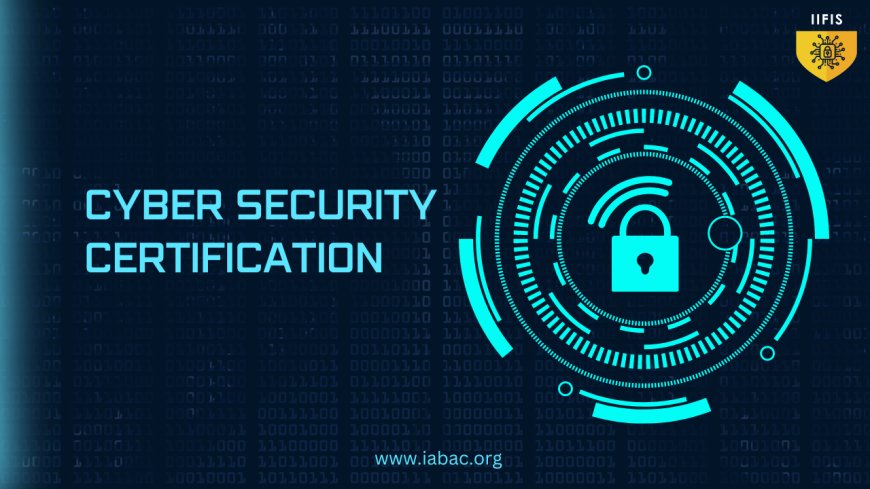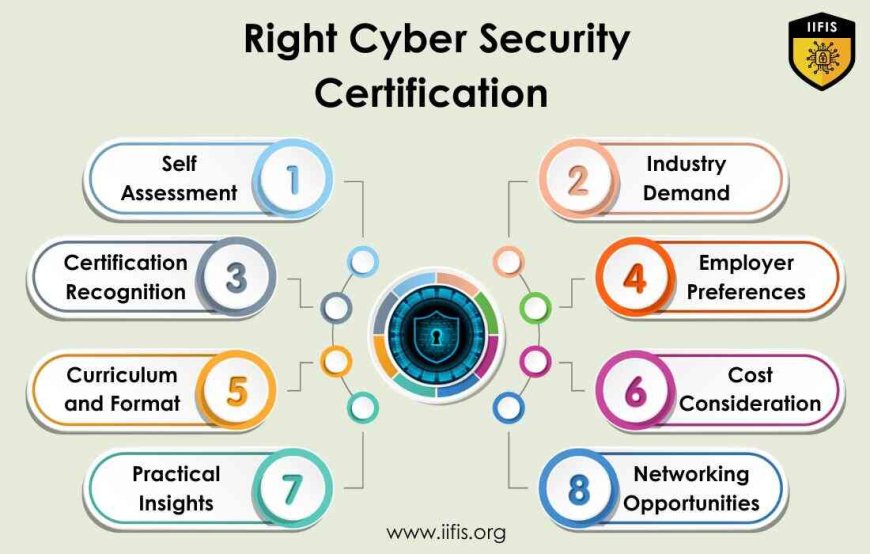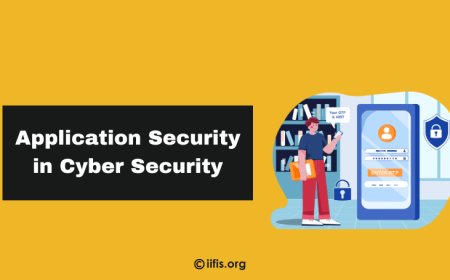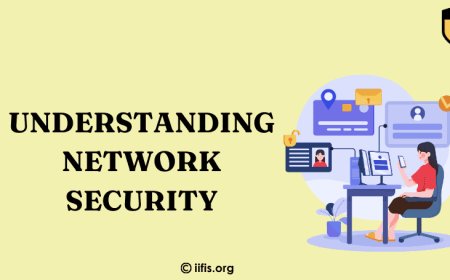Key Skills and Knowledge Areas Covered in Cyber Security Certifications
Explore essential skills & knowledge areas in cyber security certifications. Enhance your expertise & stay ahead in the dynamic field of cybersecurity.

Cybersecurity is becoming increasingly important in modern technology to protect our online presence. With our increased reliance on technology for daily tasks, there is a significant risk of cyber threats. Our privacy and financial security are at risk from a wide range of possible dangers, including malware and phishing scams. It takes proactive steps to reduce these risks, such as adopting secure passwords and updating technology.
Cyberattackers' strategies also change as technology does, highlighting the continued significance of cybersecurity. The key to properly operating the online environment is to be aware and take preventative steps. By making cybersecurity a top priority, we can better defend our private data and ourselves against ever-changing online dangers.
Selecting the Right Cyber Security Certification for Your Career Path
-
Self-Assessment:
-
To find the cybersecurity certification that best fits your ambitions, consider your current abilities, experiences, and career objectives.
-
Think about your areas of strength and improvement as well as your areas of interest within cybersecurity.
-
Industry Demand:
-
Examine industry research and current job commercials to find out which cybersecurity qualifications are in high demand.
-
Seek certifications that employers in your target industry or profession regularly mention in job descriptions and that they value.
-
Certification Recognition:
-
Select certificates that are credible and well-known in the cybersecurity industry.
-
Seek out certificates from respectable businesses or organizations that have a proven track record of providing cybersecurity training and education.
-
Employer Preferences:
-
Make a note of any particular certificates that hiring managers in your desired field or position favor or demand from candidates.
-
Adapt your certification selections to prospective employers' requirements and expectations to make yourself more competitive in the employment market.
-
Curriculum and Format:
-
Examine each certification program's syllabus, course materials, and exam structure to make sure they suit your learning style and capability.
-
Based on your skills and interests, choose the certification that best suits your needs by taking into account whether it emphasizes more academic knowledge or practical, hands-on components.
-
Cost Consideration:
-
Consider the cost of the exam, study materials, training sessions, and certification renewal when calculating the total outlay of funds needed to obtain and keep the certification.
-
To properly budget for your certification path, including any additional expenses for continuing professional development or preparation materials.
-
Practical Insights:
-
Consult mentors, coworkers, or seasoned cybersecurity experts who hold the necessary credentials for direction and assistance.
-
Learn from their achievements, setbacks, and experiences to obtain practical knowledge about the qualifications that will help you develop in your career.
-
Networking Opportunities:
-
Make contact with people who possess the qualifications you're interested in to find out more about their viewpoints and experiences.
-
Join online and offline professional cybersecurity organizations, forums, and networks to increase your network and learn important information about certification courses and employment options.
What are the fundamental skills required to excel in the field of cyber security?
-
Technical Proficiency: Gain a thorough understanding of programming languages, networks, and computer systems. This need for an understanding of network protocols, operating systems, and coding.
-
Critical Thinking: Cybersecurity is about thinking like a hacker to foresee and stop attacks, not just about following protocols. Analytical abilities are essential for identifying threats and creating strong defenses.
-
Problem-Solving Abilities: Cyber dangers are dynamic problems that require skillful problem-solving. You should have the ability to use creative thinking to solve challenging issues, whether you're looking into a breach or identifying weaknesses in a system.
-
Attention to Detail: In the world of cybersecurity, even the smallest mistake can have serious repercussions. It is essential to pay close attention to details to detect irregularities, recognize security flaws, and guarantee that your work is complete.
-
Communication Skills: It's common to have to explain technical concepts to stakeholders who are not technical. Gaining support and buy-in for security efforts requires the ability to clearly and understandably communicate complicated concepts.
-
Continuous Learning: You need to keep up with the most recent developments in cybersecurity technologies, trends, and strategies since cyber threats are constantly evolving. This involves setting aside time for continuing education via classes, and certificates, and staying current with changes in the profession.
-
Ethical Mindset: Ethics and integrity are fundamental to cybersecurity. As you will frequently be working with sensitive data and have access to powerful technologies, upholding moral values is important for gaining respect and confidence in your area.
-
Teamwork and Collaboration: Rarely is cybersecurity a one-person job. Working in teams is something you'll do a lot, be it with IT personnel, business stakeholders, or other security experts. The secret to success is being able to work well with people and take advantage of different viewpoints.

Advantages of Cyber Security Certifications
-
Validation of Skills: A certification gives you proof that you have the required cybersecurity knowledge and abilities. They provide prospective employers with proof of your experience, which increases your appeal as a candidate.
-
Career Advancement: Having certificates can lead to prospects for job progression. When promoting current employees or hiring for higher-level positions, many companies search for qualified professionals.
-
Industry Recognition: Certifications are accepted benchmarks in the cybersecurity sector. Obtaining a certification makes you appear more knowledgeable in the industry and increases your visibility to employers and colleagues.
-
Competitive Edge: Certifications might offer you a competitive advantage over other applicants in a competitive employment market. They operate as a differentiator that makes you stand out and improves your chances of getting the jobs you want.
-
Expanded Skill Set: The wide range of cybersecurity topics covered by certification programs enables you to broaden your skill set beyond what you are currently proficient in. This gives you the freedom to explore new career options in cybersecurity and take on new challenges.
-
Stay Updated: You usually need to participate in continuing education and stay up to date with industry changes and best practices to maintain your certification status. This makes sure that, in a profession that is changing quickly, your abilities will remain relevant.
-
Networking Opportunities: Attending conferences, forums, and online groups are just a few of the networking options that certification programs frequently offer. Establishing ties with other credentialed professionals can result in beneficial collaborations, career connections, and mentoring.
-
Increased Earning Potential: Professionals in cybersecurity who hold certifications frequently earn more money than those who do not. Employers are prepared to pay more for candidates who have earned certifications as proof of their knowledge.
In the fast-changing sector of cybersecurity, cybersecurity certifications provide a route to success. Professionals can develop in their jobs, prove their abilities, and be recognized in the business by earning certificates. A person's skill set is broadened, their knowledge is kept current in the face of evolving risks, and they get a competitive edge in the job market with these credentials. Professionals can connect with colleagues and mentors through networking possibilities provided by certificates, which further improves their chances of landing a job. Finally, obtaining a cybersecurity certification improves one's earning potential, validates one's knowledge, and helps to maintain privacy and digital assets in a globalized society.
























